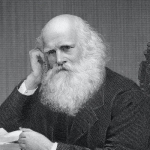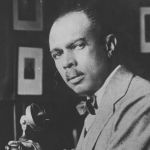(from Twelfth Night)
When that I was and a little tiny boy,
A foolish thing was but a toy,
For the rain it raineth every day.
But when I came to man’s estate,
With hey, ho, the wind and the rain,
’Gainst knaves and thieves men shut their gate,
For the rain it raineth every day.
But when I came, alas! to wive,
With hey, ho, the wind and the rain,
By swaggering could I never thrive,
For the rain it raineth every day.
But when I came unto my beds,
With hey, ho, the wind and the rain,
With toss-pots still had drunken heads,
For the rain it raineth every day.
A great while ago the world begun,
With hey, ho, the wind and the rain,
But that’s all one, our play is done,
And we’ll strive to please you every day.


















Comment form: